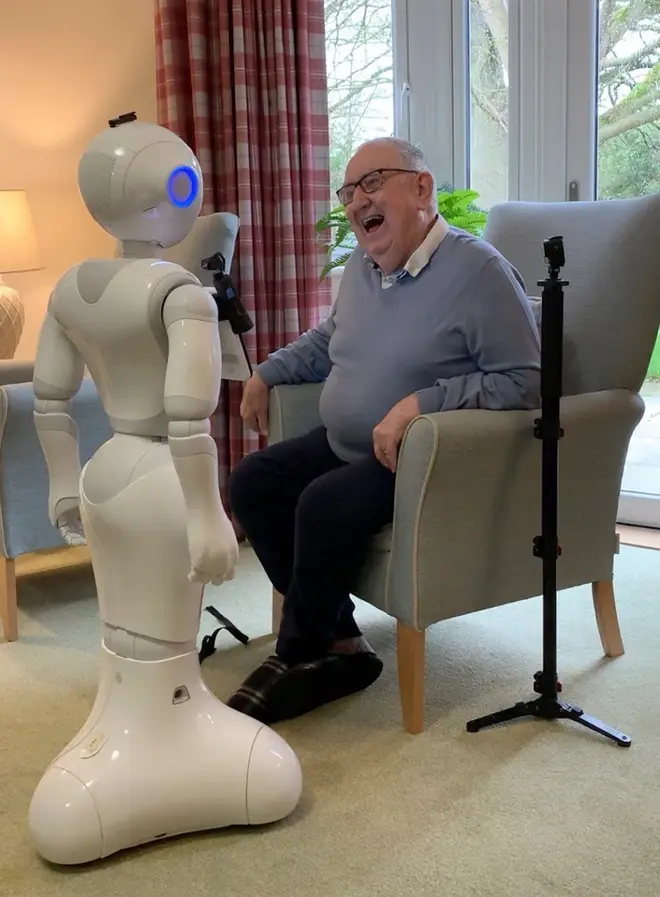
Clive Bull 1am - 4am
8 September 2020, 08:54

The study marks the first time researchers have collaborated to explore the possibility of developing culturally competent robots.
Robots could be introduced to help care for the elderly after a study showed they can improve mental health and have the potential to reduce loneliness in older people.
The study, involving the University of Bedfordshire, Middlesex University and Advinia Health Care, is the first time researchers have collaborated to explore the possibility of developing culturally competent robots.
Robots were tested in care homes in the UK and researchers found that older adults who used the culturally competent robot called Pepper – up to 18 hours across two weeks – saw a significant improvement in their mental health.
After two weeks of using the system there was a small but positive impact on loneliness severity among users, and the system had a significant positive impact on participants’ attitudes towards robots.
Lead author of the evaluation, Dr Chris Papadopoulos, from the University of Bedfordshire, said: “This study is ground-breaking because it is the largest ever investigation into the use of autonomous social robots for older adults in care settings.
“The results show that using the Caresses artificial intelligence in robots such as Pepper has real potential benefit to a world that is witnessing more people living longer with fewer people to look after them.
“Poor mental health and loneliness are significant health concerns and we have demonstrated that robots can help alleviate these.”
Irena Papadopoulos, professor of transcultural health and nursing at Middlesex University, was responsible for developing the cultural concepts and guidelines so that the robots were able to respond to the culture-specific needs and preferences of older people.
“Socially assistive, intelligent robots for older people could relieve some pressures in hospitals and care homes.
“No-one is talking about replacing humans – the evaluation demonstrates that we are a long way from doing that – but it also reveals that robots could support existing care systems,” she said.
Discover how to embrace #Robotics robotics in #healthcare Healthcare #SeniorCitizens ❤️ pic.twitter.com/9F8pzgENVN
— Pepper (@PepperTheRobot) March 27, 2020
Dr Sanjeev Kanoria, surgeon, founder and chairman of Advinia Health Care, one of the largest providers of dementia care in the UK, said: “Robots were tested and improvements in functionality made following trials at Advinia care homes.
“This is the only artificial intelligence that can enable an open-ended communication with a robot and a vulnerable resident.
“We are working towards implementing this into routine care of vulnerable people to reduce anxiety and loneliness and provide continuity of care.
“The robot was tested in Advinia’s care homes in the UK. Now we are working towards bringing the robot into routine care, so it can be of real help to older adults and their families.”